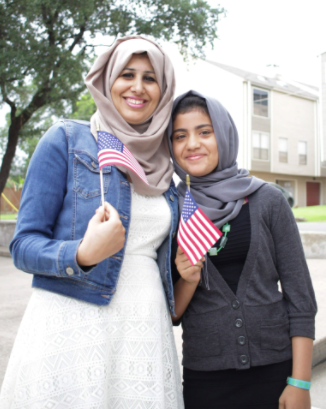By Guest Blogger Heather Elise Duge
A few bites of a scrambled egg changed our lives forever.
About six years ago, I had just finished feeding our baby and put her down to play. The moments that followed are a blur. I remember my husband calling for me to come quickly. Our baby looked unrecognizable — hives all over and facial swelling to the point that her eyes had closed. I remember praying the whole way to the hospital, begging God to not let it get any worse. As we pulled in, her lips had swollen to double their size. She struggled to breathe. Epinephrine saved her life that day.
And just like that, we were thrown into a whole new world of life-threatening food allergies … a world that involves lots of learning and navigating as we go … a world where we live with the jarring reality that one wrong bite could be fatal.
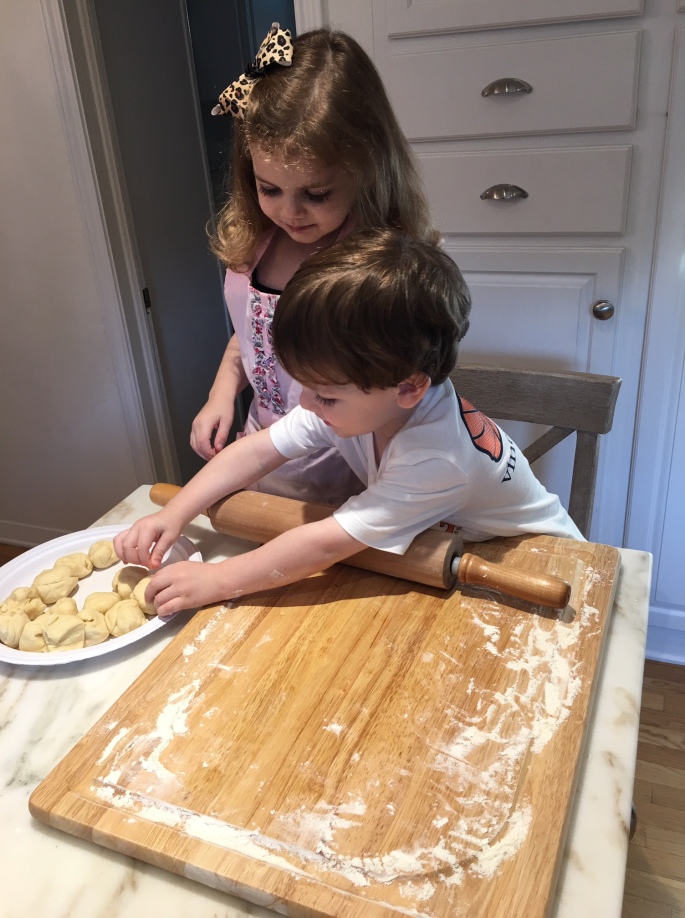
Before we left the hospital that day, the E.R. doctor diagnosed her with anaphylaxis, gave us an EpiPen prescription and warned us not to give her any new foods until testing. But I didn’t realize what I ate could affect her, too. After a few bites of trail mix one day, I kissed her on the cheeks, and every kiss left a hive. Testing revealed it’s not just egg. She also has severe allergies to peanut, tree nuts, sesame, soy, mustard and shrimp.
Fast forward a few years, and I was pregnant with our baby boy. He underwent testing at four-months old, and — to our surprise — no food allergies were revealed. I was so relieved. But we knew in the back of our minds that he was more likely to develop them. Nearly three years went by and still no allergies, until a few bites of a peanut butter pretzel at a friend’s house changed our lives again. He vomited.
My husband was at work, so the three of us jumped in the car and headed to the hospital, just in case. I knew the drill — if the reaction involves two bodily systems, grab the Epi. It quickly progressed to hives and swelling. My shaky hands dug into my purse for my daughter’s EpiPen as I swerved to the side of the road and reached back to inject it into his thigh. The next thing I knew we were in the E.R. with my swollen and pale toddler hearing the doctor repeat those familiar words, “You saved his life today. Don’t ever hesitate to use the EpiPen.”
And just like that we had two children with life-threatening food allergies.
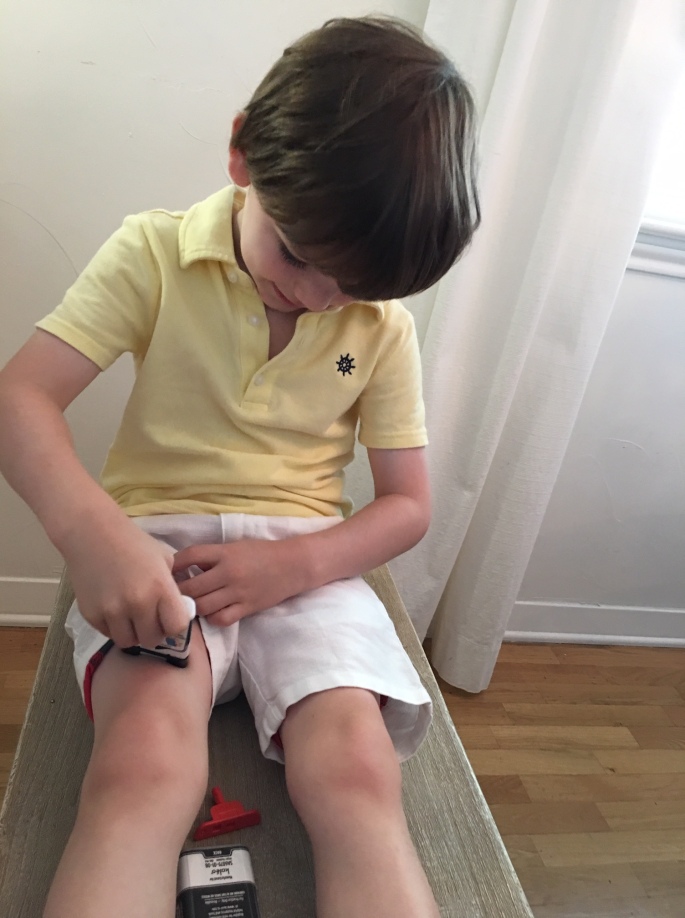
Food Allergies Are On The Rise
Unless someone has a child with food allergies, I don’t expect them to know the ins and outs of it all. That’s why education and awareness are so important. That’s why I’m writing this article. One in 13 children has severe food allergies, and 75% of these cases occur in children with no prior family diagnosis. Each reaction can be different and range in severity, but those with food allergies must always be prepared.
Chances are you already go to a place (like our church) that ensures a nut-free environment. Chances are your child will probably know someone with food allergies and could save a life. It happened to my sister, who has sesame and tree nut allergies, when she reacted to unlabeled sesame flour in a restaurant’s tortilla wrap, and her college roommate knew how to use the EpiPen.
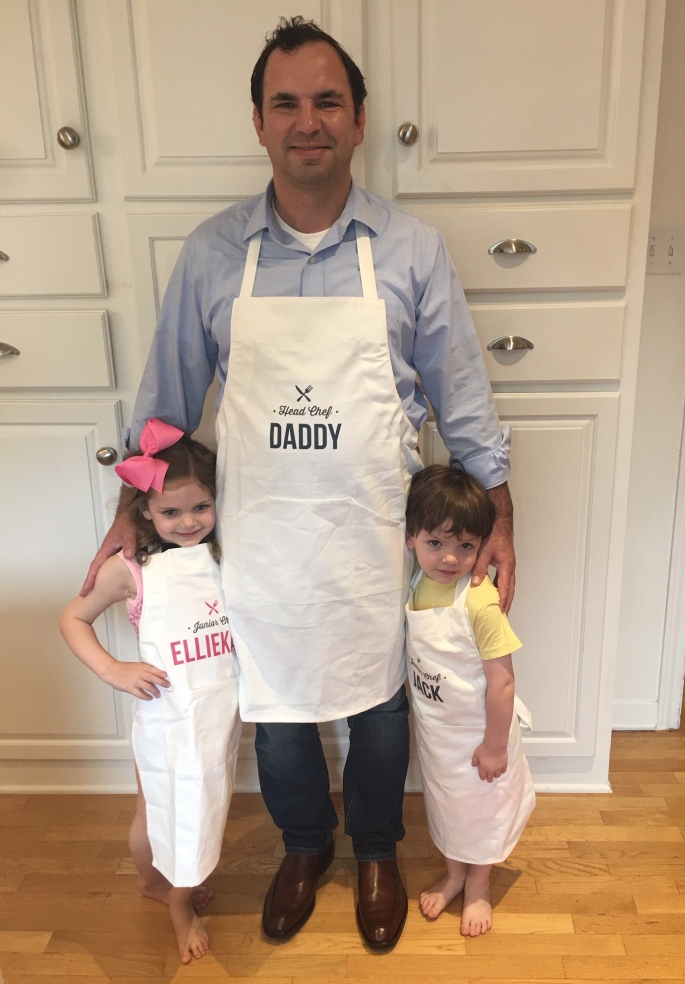
Cross-Contact Is Like Playing Russian Roulette
Reading food labels has become second nature to us (who knew Chewy SweeTARTS contain egg?). You may notice some foods labeled with “may contain peanuts” or “made on shared equipment with peanuts, tree nuts and egg.” That equipment may or may not be cleaned thoroughly enough to avoid a rogue almond or sesame seed making its way into the wrong food. On top of that, each manufacturer can change its protocols at any time.
The U.S. has become better about labeling for the top eight allergens, but other foods — like sesame — can be tricky. Since sesame allergies are on the rise, legislation to include it in the top allergens has been passed in some states. Texas has yet to do that. Foods like crackers, cereals, bread and more may contain sesame and be labeled under “flavoring” or “spices,” as a teen’s father found out the hard way after watching his daughter collapse on a plane from eating a sandwich with unlabeled sesame in the dough.
Eating out and avoiding seven different allergens is hard, so we cook a lot. Thank goodness my husband has found he really enjoys cooking, and we all love the result. Our favorites so far are made-from-scratch pizza and donuts.
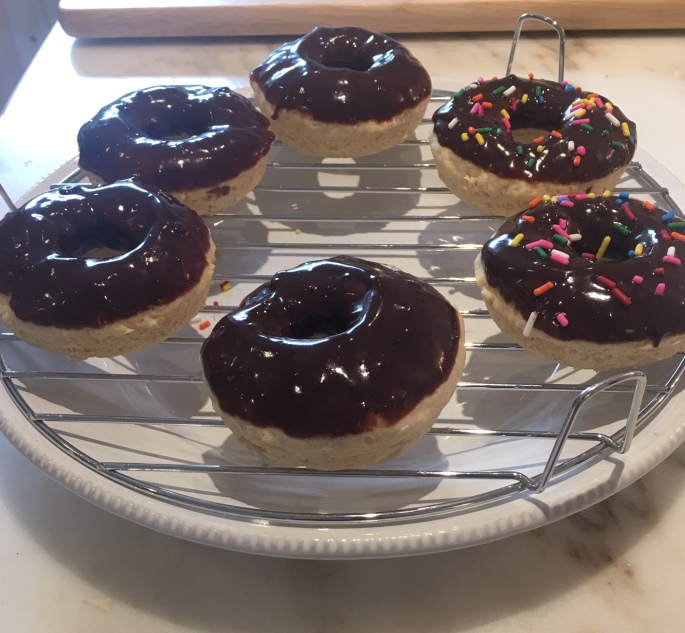
Kids Are Learning To Be Their Own Advocates, But They’re Still Just Kids …
A child with food allergies has big responsibilities. At age three, both of our children learned to recite their list of allergies. They know how to use their epinephrine auto-injectors. I’ve heard them describe their allergies to friends and why they can’t eat certain foods. They are both very aware and cautious, but that doesn’t change the fact that they are still just kids and need support and guidance from others on this food allergy journey.
Kindness Truly Does Go A Long Way
I remember thinking I knew we had to find the good that could come out of this. After six years, I’ve come to realize that the silver lining is watching our children learn what empathy means, like when teachers prayed each morning for a reaction-free day and taught the students, by example, what it means to put others before yourself. Or when a staff member in the lunchroom went above and beyond to make sure lunchtime was safe and enjoyable for her. Or when a neighbor with a cake business helped me frost my daughter’s homemade birthday cake. Or when a friend’s pinata broke open at her birthday party, and my daughter could eat all the candy. Or when a boy in her class took it upon himself to be the “peanut police” every day at lunch. Or when that same boy’s mom wrote to me at the end of the year to tell me that eliminating allergens had made them more creative with food, and that she was grateful to find healthier alternatives. Or when our neighbor threw safe candy with a sweet note over our fence. Or when moms asked to bring safe cookies for their child’s birthday because they wanted my daughter to be included. Or when moms in charge of a special day at school made sure she could eat all the snacks. Or when a sixth grader planned an allergy-free treat section at our school’s pumpkin patch. To say our kids are grateful for these acts of kindness is an understatement. And in turn, they have learned to think of others before themselves, knowing how it feels when others sacrifice so they can be included.

I Rely On God In A Whole New Way
I get the question from mom friends all the time, “How do you deal with knowing that one mix up could be tragic?” The short answer is Jesus. I’m on my knees in prayer much more than I was before this diagnosis. The reality that a lick of peanut butter or a sesame seed could take my child’s life forces me to rely on God in a totally different way.
We Never Leave Home Without Our EpiPens
We are told to always carry two EpiPens with us. Because there have been times when one is not enough. But sometimes even three is not enough, in the case of Natalie Giorgi who unknowingly ate peanuts in a Rice Krispies treat.
For the Debbs family, their son Oakley is the driving force behind a campaign, Red Sneakers For Oakley, to educate others that epinephrine — not an antihistamine — is the only medication that will treat anaphylaxis. Oakley had always been vigilant to avoid nuts and experienced only a few mild reactions before one Thanksgiving when he unknowingly grabbed a piece of cake containing nut extract. His parents were not prepared for what was to come.
In “Lessons from a Teen Food Allergy Tragedy,” Dr. Robert Wood, director of Pediatric Allergy and Immunology at the Johns Hopkins Children’s Center said, “Epinephrine needs to be given promptly in the event of a reaction; the longer it’s delayed before being given, the greater chances that it won’t work.”
Sometimes food allergy parents may seem overprotective. But here’s the kicker. If we get it wrong, we don’t get to hit the reset button.

Heather Elise Duge is a freelance writer for pediatric hospitals in the DFW area. Before her first child was born, she was a writer for Children’s Health and story producer for a documentary, “Children’s Med Dallas.” Heather enjoys volunteering, teaching preschoolers at Sunday school and spending time with her husband and two children.
Want to know what life is like for other moms? Read our “What I Wish You Knew” series:
What I Wish You Knew: I’m Raising A Black Son In America

What I Wish You Knew: Life For Refugee Mothers
